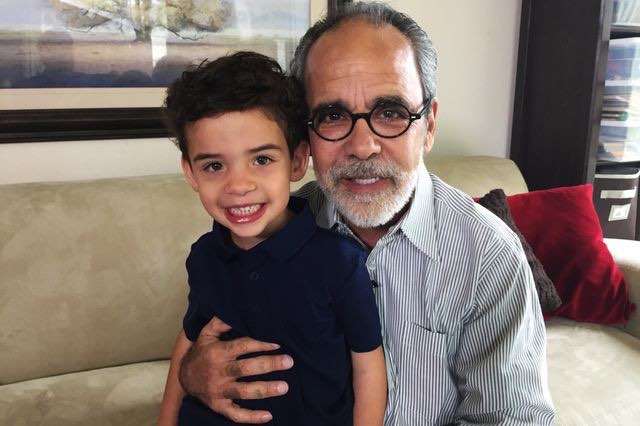Mom Made it her Mission to Go to Hospitals to Cook Healthy Food for Kids With Cancer
This mom cooks nutritious food for hospitalized kids with cancer when they are least likely to care about eating at all, much less choosing foods that heal.

Gift certificate, layaway plan or voucher. Call it what you want, but an innovative organ donation program has started to spread to other transplant programs across the United States.
It all started when Howard Broadman approached the UCLA Medical Center with the concept of donating a kidney to a stranger, so that if his ill grandson needed one in the future, he would be guaranteed the lifesaving organ.
"Sometimes, patients may be heading toward transplantation in the next few years, but it would be more convenient for a friend or family member to donate a kidney now," said Dr. Jeffrey Veale, a transplant surgeon who helped initiate the program. "Their intended recipient who is nearing dialysis would receive a gift certificate to redeem for transplantation when needed."
"It is such a simple concept," Veale said. "It's the brainchild of a grandfather who felt he would be too old to donate in a few years when his grandson would likely need a transplant."
Broadman, a lawyer and retired judge in Laguna Niguel, California, was 64 at the time, and his grandson Quinn was four. "I approached UCLA and asked, ‘Why don't I give a kidney to someone who needs it now, then get a voucher for my grandson to use when he needs a transplant in the future?' And that's just what we did."
This program was also recently used for a teenage girl in New York who has a functioning kidney transplant. The girl's father donated a kidney so that she would have a gift certificate for a second transplant if she needs it.
Nine other transplant centers across the U.S. have agreed to offer the gift certificate program, under the umbrella of the National Kidney Registry's advanced donation program. Veale anticipates that more living donors will come forward to donate kidneys, which could trigger more transplant chains.
Veale said some potential donors who have given thought to helping a stranger that needs an organ are reluctant to donate a kidney for fear that a family member might need one in the future. But if the gift certificate approach is successful, altruistic donors could donate a kidney and their spouse or child would receive a gift certificate for a future transplant.
"We have seen an increase in the number of altruistic donors over the past few years," Veale said. "Often these people start off as blood donors or bone marrow registrants."
There were 5,538 living donor kidney transplants in the U.S. in 2014. If just 0.5 percent of the nation's adults became living kidney donors, the kidney transplant waiting list would be wiped out 15 times over.
At his home in southern California, Broadman's eyes welled with tears as he reflected on the implications of what he started. "I've left a legacy for my grandson," he said. "I may not even be here when he realizes it, but I changed his life. It doesn't get much better than that."
(WATCH a video below)
SHARE the Lifesaving News…
Be the first to comment